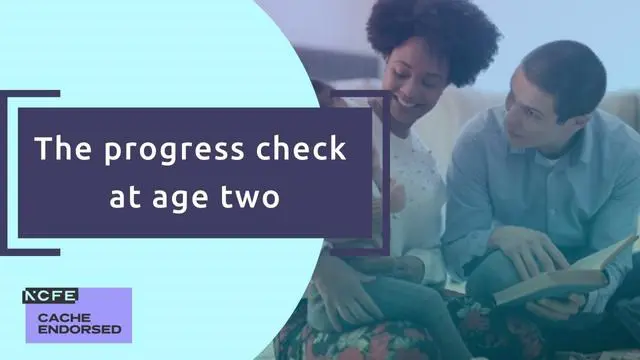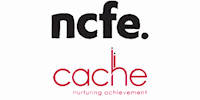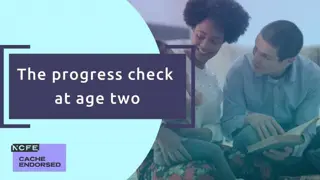
The progress check at age 2 - CACHE endorsed
Online CACHE endorsed CPD short course for early years practitioners, the Key Person, and nursery staff
Laser Learning
Summary
- Certificate of completion - Free
- NCFE CACHE endorsed e-Certificate - £4.99
Add to basket or enquire
Overview
It's a requirement of the EYFS to review the progress of children between the ages of 2 and 3 years old. This course explains the importance and aims of the progress check, steps you need to take, and the roles and responsibilities of everyone involved.
Consider the role of the Key Person, the best time to conduct the check, and how to engage parents and carers in the process.
Achievement
Certificates
Certificate of completion
Digital certificate - Included
NCFE CACHE endorsed e-Certificate
Digital certificate - £4.99
Resources
- e-Book: Understanding cognitive development in children - download
Description
Learning outcomes
- You will understand why a progress check at age 2-3 is important and can help with early identification and intervention
- You will feel confident with the steps to take when conducting the check and who needs to be involved internally and externally
- You will be able to explain and justify the progress check to families and engage them in the process
Advantages of the course
- 2 to 3 years is a very important time in a child’s life. It’s a time of rapid learning and development, and also a time when signs and symptoms of Special Educational Needs and Disabilities (SEND) may become clearer. The progress check can help to identify any emerging needs or areas where a child isn’t developing as expected. This course explains the different developmental areas and 'norms' you need to observe and assess against, and the importance of inviting parents and carers to share their observations and insights.
- The progress check at age 2 should be seen as an opportunity to build partnerships with the child's family, and other practitioners at the setting. Many families will want to be involved and keen to contribute, but others may be harder to reach. The presentation section of this course considers the reasons why some families are hard to reach and reluctant to be involved, and suggests strategies to remove / reduce barriers to engagement.
- Websites, reading, and video resources are utilised to further explore the progress check at age 2
- There are activity and further reading sections that encourage you to do your own research into the topic and gives both practical information and links to websites to expand knowledge
On successful completion of this course, you will receive a Laser e-Certificate (included in the course price). You will also have the option of purchasing a CACHE Endorsed e-Certificate for an additional £4.99.
Endorsement statement: Our short course has been reviewed by a Subject Specialist and endorsed by CACHE demonstrating the quality and rigor. This is an unregulated programme and is not a nationally recognised qualification.
After purchasing this course on Reed, a customer service representative from Laser Learning will email you with instructions on how to access your course on the Laser Short Course website.
If the purchase was made within business hours, you should expect your email within 1-2 hours. If your purchase was made outside of business hours, you should expect your email the next working day.
Who is this course for?
Early years practitioners working with 2-3 year olds, with particular relevance to a Key Person.
Requirements
A computer, mobile, or tablet and an internet connection
Questions and answers
Currently there are no Q&As for this course. Be the first to ask a question.
Reviews
Currently there are no reviews for this course. Be the first to leave a review.
Legal information
This course is advertised on reed.co.uk by the Course Provider, whose terms and conditions apply. Purchases are made directly from the Course Provider, and as such, content and materials are supplied by the Course Provider directly. Reed is acting as agent and not reseller in relation to this course. Reed's only responsibility is to facilitate your payment for the course. It is your responsibility to review and agree to the Course Provider's terms and conditions and satisfy yourself as to the suitability of the course you intend to purchase. Reed will not have any responsibility for the content of the course and/or associated materials.



